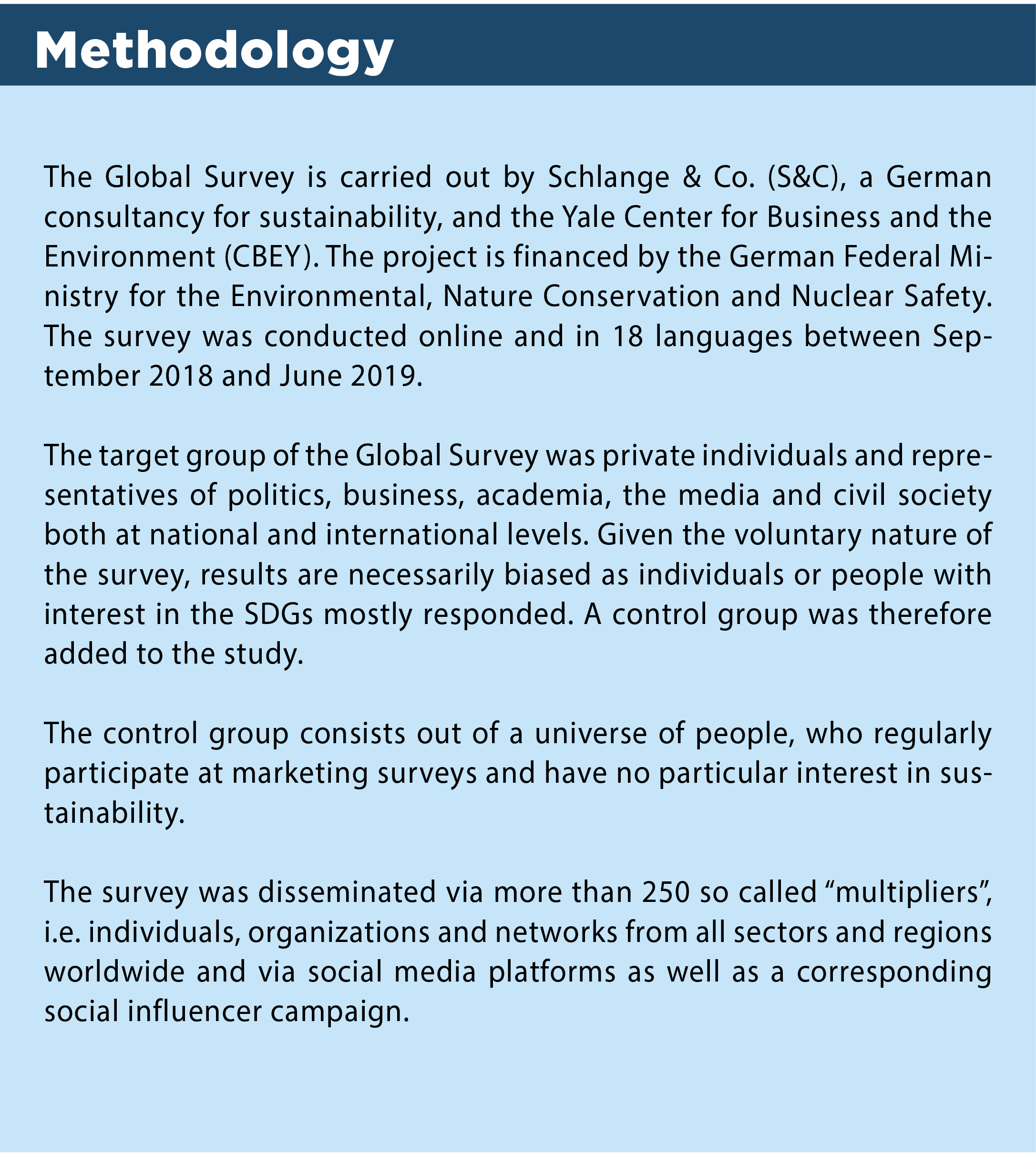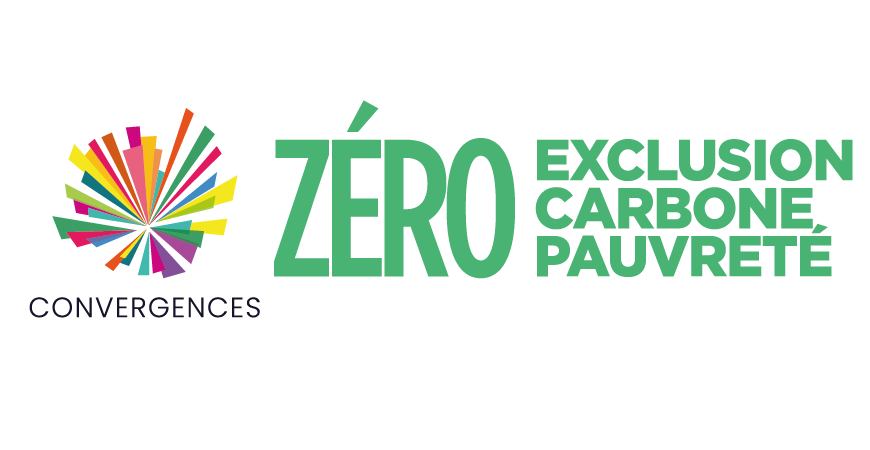
In 2015, the UN General Assembly adopted the 17 Sustainable Development Goals (SDGs) as part of the 2030 Agenda for Sustainable Development. Since then a lot has happened. But how satisfied are people around the world with the progress achieved? What is important to them when it comes to sustainability? For the first time, these questions are the focus of a worldwide survey called “Global Survey on Sustainability and the SDGs” (‘Global Survey’).
The overall objective of the Global Survey was to create awareness, to initiate and accelerate the necessary decisions to implement sustainable development. To do so, the survey aimed to reach as many people around the world as possible in order to inquire about their personal and professional perspective on the status of sustainability in their country, as well as their knowledge, acceptance and expectations of the SDGs.
Focus on participants
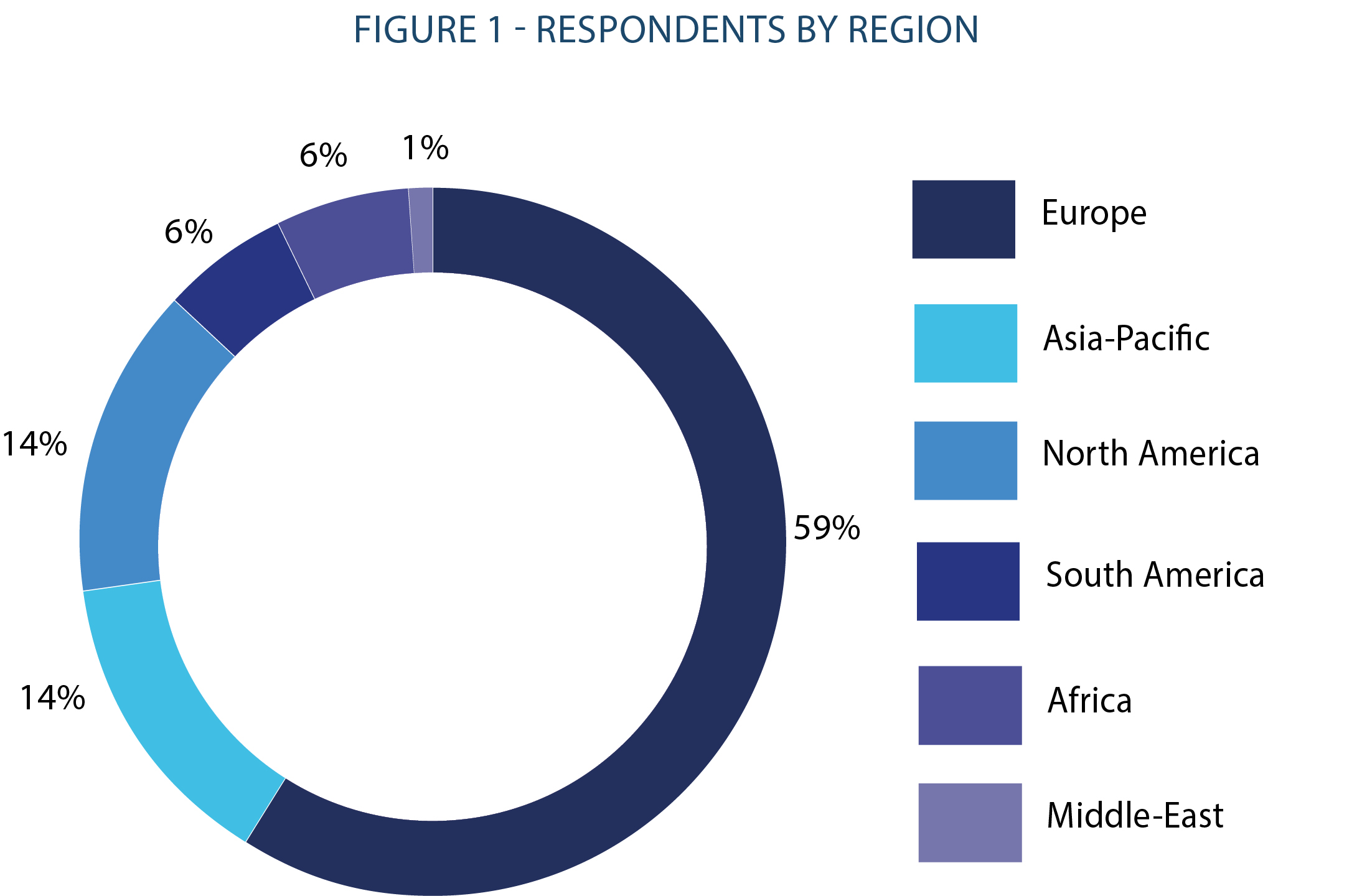
In total, more than 26.000 people from all over the world participated in the Global Survey. The majority of survey respondents are female (almost 60%), between the ages of 20-39 (62%), and have pursued higher education (over 75%). Responses were collected from more than 175 countries, although distribution varies across regions, led by Europe (59%), followed by Asia Pacific and North America (both 14%). Professionals from the private, non-profit and public sectors, from academia and education, arts, culture and media as well as students are represented.
Less than half of the respondents are aware of the SDGs
The Global Survey results indicate that the Sustainable Development Goals (SDGs) framework is not well recognized around the world. The average awareness of the SDGs across the entire survey group is just under 50%. The real level of awareness may be even much lower as our control group of randomly selected respondents show a level of only 16%.
On the other hand, however, there is an almost 98% awareness of the term ‘sustainability’. The results clearly demonstrate that while people are largely aware of the issues described by the 17 SDGs, they are not familiar with the SDG framework itself.
Quality Education, Health and Climate Action are ranked as top priorities
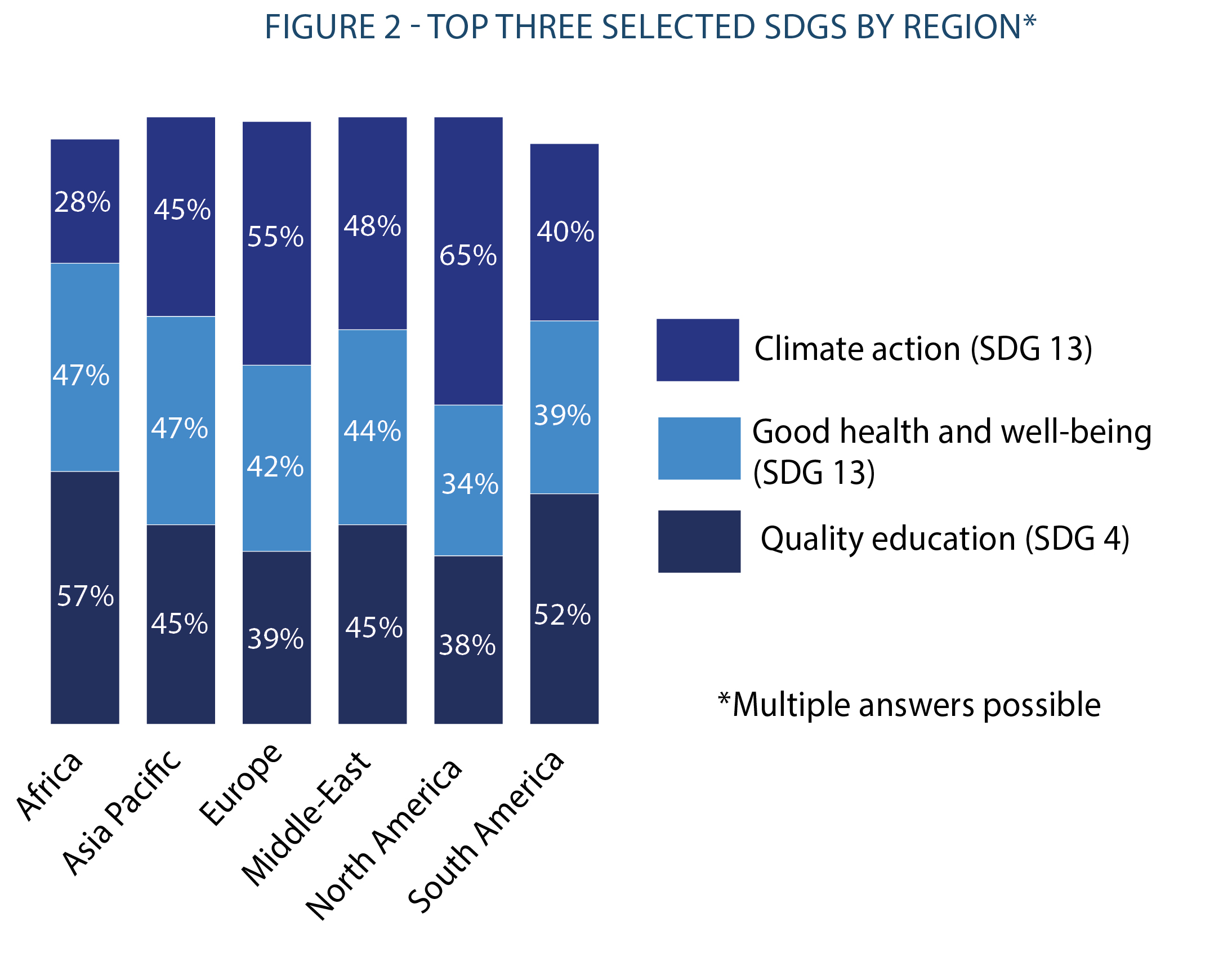
When survey participants are asked which of the 17 Sustainable Development Goals (SDGs) are of immediate concern to them and their family, the six most pressing are:
- Quality education (SDG 4)
- Good health and well-being (SDG 3)
- Climate action (SDG 13)
- Decent work and economic growth (SDG 8)
- Clean water and sanitation (SDG 6)
- Affordable and clean energy (SDG 7)
Respondents consistently point to Quality Education and Health as their top priorities. Climate Change is also prevalent as a priority although the relative importance differed remarkably between regions. Climate change is a top priority but shows more regional variability than other prioritized SDGs.
On a regional level, climate change shows the greatest variability of prioritization ranging from high in North America and Europe to relatively low in South America and Africa. In Africa only 28% of respondents are ranking climate change as one of their top six priorities. Poverty, in contrast is more commonly identified. This probably needs to be considered in the context of the region: despite declines in extreme poverty across most of the world, Sub-Saharan Africa is witnessing the opposite. According to forecasts by the World Bank, nearly 9 out of 10 extremely poor people will live in Sub-Saharan Africa by 20301.
Europe and North America, in contrast show high levels of concern with climate change, i.e. 55% and 65% of respondents respectively identifying climate change as a top six priority. An hypothesis is that concern for climate change can be deemed a ‘luxury’ surfacing only when more immediate concerns such as economic well-being and clean water and air are fulfilled. A similar relationship emerges when setting a nation’s GDP per capita against its SDGs of concern: countries with high GDP per capita prioritize “climate action” while countries with low GDP per capita prioritize “quality education.”
The results have direct implications for governments seeking to address climate change. They suggest that building public support for climate change solutions may be more difficult if more direct environmental and socio-economic issues are not simultaneously addressed.
There is a significant divide along gender and regional lines when assessing the importance of gender equality
One key finding of the report relates to SDG 5 “Gender Equality”. This is one of only two SDGs that demonstrate significantly different responses between females and males (the other is SDG 7 “affordable and clean energy”). Globally, 31% of female respondents rank “gender equality” as an SDG of immediate concern compared to 15% of male respondents. The latter category also report a higher degree of improvement in this SDG than female respondents. These discrepant perceptions must be addressed given the role of gender parity in both economic and environmental wellbeing.
There are also important regional variations concerning gender equality. Respondents (both male and female) from Australia, Europe, and North America include “gender equality” as one of the most important SDGs, ranking it among the top six in those regions.
Comparatively “gender equality” is not prioritized among the top six SDGs for all other regions. This appears to reflect regional trends that identify gender disparity as a critical social issue.
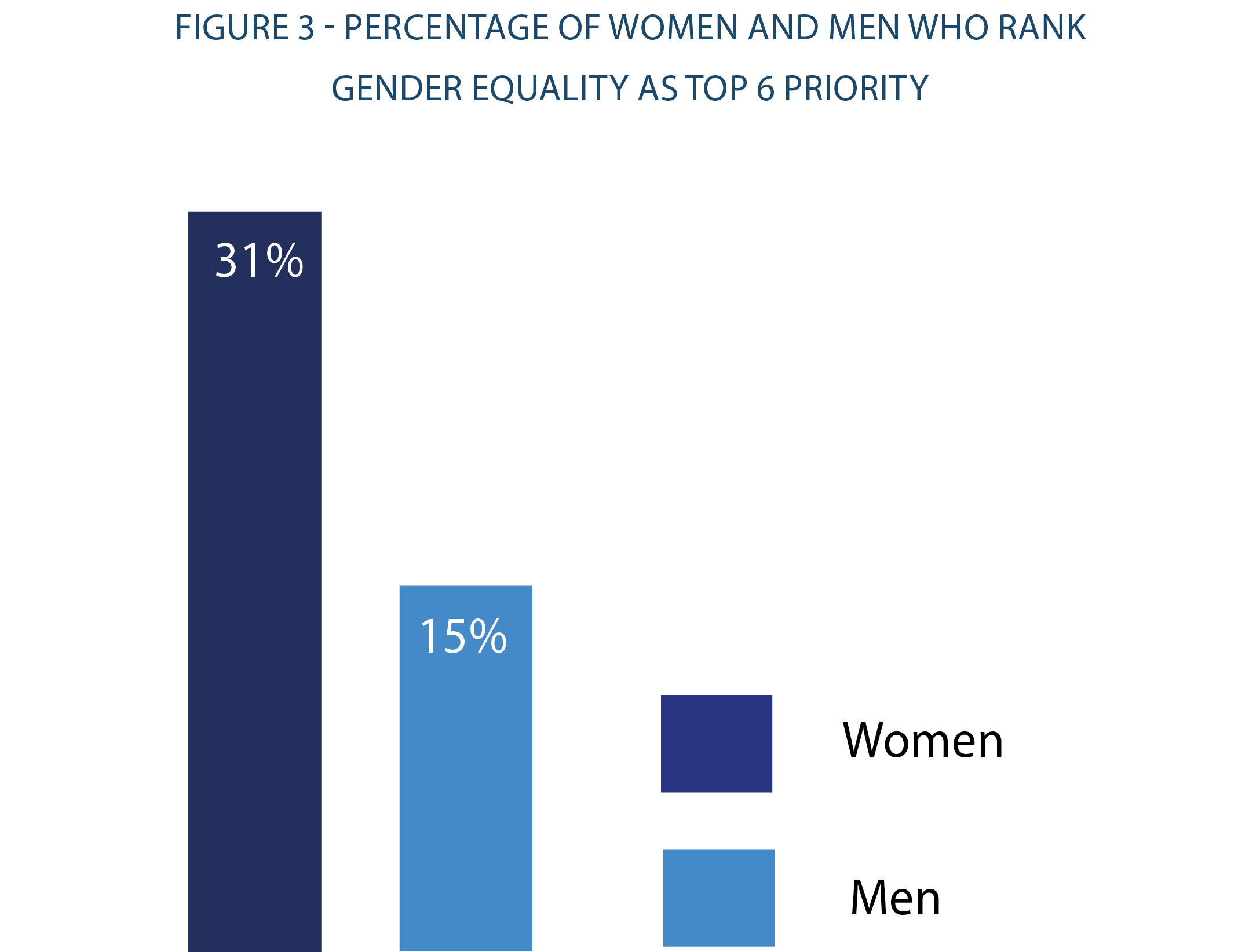
Though, the Global Survey presents a range of global and regional findings exploring what people around the world prioritize in the SDGs and how they believe these goals might be achieved, much remains unknown. Of particular importance for further research are questions around the most effective collaboration models and the personal actions (i.e. what impact individuals can have in their daily lives) that lever the greatest change toward achieving the SDGs.
DISCLAIMER: This article shows preliminary results. Final results will be presented parallel to the UN SDG Summit in September in New York and publicly disclosed on the official Global Survey website (www.globalsurvey-sdg.com).
1 World Bank (2018): Poverty and Shared Prosperity 2018: Piecing Together the Poverty Puzzle
JOACHIM SCHLANGE
MANAGING PARTNER &
THERESA FRANK
SENIOR CONSULTANT AND
PROJECT MANAGER OF THE GLOBAL SURVEY &
SINA BEECKEN
ANALYST
SCHLANGE & CO. GMBH (S&C) &
TODD CORT
YALE CENTER FOR BUSINESS AND THE ENVIRONMENT (CBEY)
